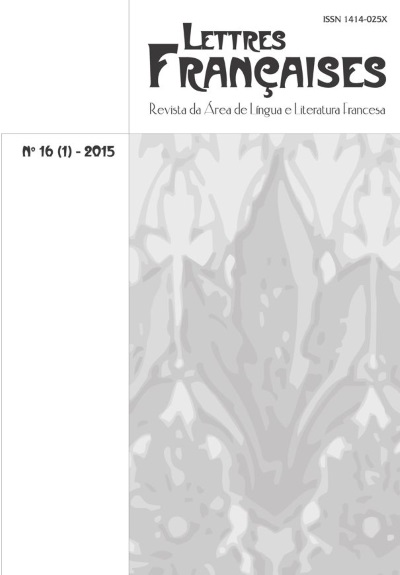Axël de Villiers de L’Isle-Adam e o teatro simbolista no fim do século XIX
Palavras-chave:
Simbolismo, Drama, Villiers, Axël,Resumo
No final do século XIX, as normas que regiam a criação artística caem por terra e o artista vivencia a crise da representação, uma vez que a arte não almeja mais imitar a natureza, mas sim, arrancar o homem da sua condição terrena para alça-lo rumo ao Absoluto. Porém, a sociedade, apegada aos valores burgueses e materialistas, não partilha de seu anseio e ele se exila na sua criação, sua torre de marfim. A palavra poética é, assim, reivindicada como um caminho que conduz a esse Absoluto. No drama, essa palavra funda um novo tipo de teatro que não tem mais o intuito de comunicar, mas de sugerir. As fronteiras entre as artes se fundem e o teatro intenta tornar-se um templo de meditação. Eis que surge Axël, escrito pelo francês Villiers de L’ Isle-Adam. Classificado como poema dramático em prosa, Axël faz ecoar todas essas questões que foram esteticamente trabalhadas pelo movimento simbolista-decadentista, e seu protagonista torna-se o protótipo do herói que se refugia na torre de marfim e prefere a inação à vida, dando as costas à mesquinhez da sociedade burguesa.
Downloads
Publicado
Edição
Seção
Licença
Os manuscritos aceitos e publicados são de propriedade da Revista Lettres Françaises. É vedada a submissão integral ou parcial do manuscrito a qualquer outro periódico. A responsabilidade do conteúdo dos artigos é exclusiva dos autores. É vedada a tradução para outro idioma sem a autorização escrita do Editor ouvida a Comissão Editorial.

